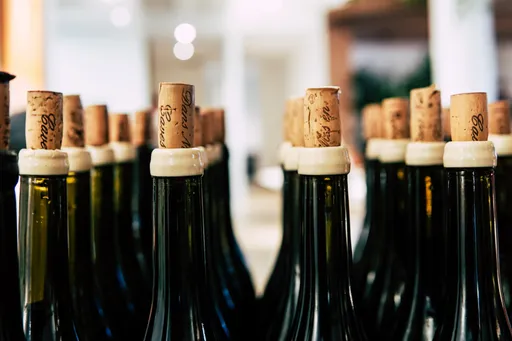You are invited to dinner and don't know what wine to bring? We suggest it to you!

Introduction
Imagine being invited to dinner by friends or relatives, and your only mission is to bring a good wine. It seems simple, but choosing the perfect bottle can be a delicate task, especially if you want to impress and make a good impression. In this article, we will guide you through the different aspects to consider when choosing the wine to bring to dinner, to ensure you make the right choice based on the occasion, menu, and tastes of the diners.
Food-wine pairing: finding the perfect harmony
Food-wine pairing is a crucial aspect to ensure a pleasant and tasty dinner. Consider the menu proposed by the host or, if you are not aware, kindly ask which dishes will be served. Based on this information, you can select a wine that perfectly complements the flavors of the food on the table.
For example, if the appetizer includes a selection of cured meats and cheeses, opt for a dry and fruity white wine, such as Sauvignon Blanc or Gavi di Gavi, which will harmonize beautifully with the salty cured meats and fatty cheeses.
If the menu offers a fish-based first course, a white wine like Californian Chardonnay or Tuscan Vermentino could be the ideal choice to enhance the delicate flavors of the fish and the freshness of the dishes.
For a meat-based main course, especially if roasted or grilled, a structured red wine like Australian Cabernet Sauvignon or Spanish Tempranillo could be the perfect accompaniment to enhance the succulent flavors of the meat.
Finally, for dessert, consider sweet wines such as Moscato d’Asti or French Sauternes to conclude the dinner on a delightful note.
Consider the people and their tastes
Knowing the preferences of the diners is a winning strategy. Some people might be passionate about wine and prefer specific labels or more complex wines. In this case, you could surprise them by bringing a bottle of a prestigious and perhaps less-known wine. However, if the guests do not have much wine experience or simply love accessible and easy-to-drink wines, opt for a more versatile bottle appreciated by a wider audience.
Also, take into account any intolerances or dietary preferences. If one of the guests is vegetarian or follows a particular diet, you could select a wine that suits the vegetarian dishes on the menu.
What do you like?
The wine you bring to dinner should also reflect your tastes and personality. If you have a preference for a certain type of wine or have recently discovered a label that has excited you, it might be the right time to share it with others. Your passion for wine will shine through and could be contagious for the other diners, creating a moment of sharing and mutual appreciation.
However, be careful not to be overly egocentric in your choice. Always try to balance your tastes with the preferences of the diners and the characteristics of the menu.
Dinner moment: appetizer, starter, first course, main course, or dessert?
Each stage of the dinner requires a different wine, so consider when the wine will be served and select accordingly.
- Appetizer, you can opt for a sparkling wine or Champagne to whet the appetite and start a pleasant evening.
- Starters, you can choose a dry white or a light and sparkling rosé, which pairs well with a variety of small tastings and appetizers.
- First courses, more structured white wines or light reds can be a suitable choice, depending on the type of dish.
- Main courses, especially if based on red meat or savory dishes, you can go for more structured and complex red wines that will perfectly accompany the intense flavors of the dishes.
- Dessert, opt for sweet wines like Moscato or Passito to conclude the dinner with a sweet and refined note.
Ask the host: the menu is the best guide
If you are unsure about the dinner menu, do not hesitate to ask the host. Knowing which dishes have been prepared will help you make the best choice for food-wine pairing. Additionally, the host will appreciate your attention and effort in bringing a wine that perfectly complements the food they have served. Their guidance will be invaluable to make the best choice and contribute to making the dinner a success.
Tips for every occasion
Formal dinner: If the dinner is a formal occasion, opt for a higher quality wine. An Italian Barolo, French Bordeaux, or a Napa Valley Cabernet Sauvignon from the United States could be elegant choices that will impress the diners.
Informal dinner: If the dinner is more informal and relaxed, go for more accessible and easy-to-drink wines, such as an Italian Montepulciano d’Abruzzo, a Chilean Carmenere, or a Spanish Garnacha.
Themed dinner: If the dinner has a specific theme, such as international cuisine or seafood dishes, choose a wine that harmonizes with the theme. For example, a German Riesling for Asian cuisine or a Spanish Albariño for seafood dishes.
Conclusions
Bringing the right wine to dinner can make the difference between an ordinary evening and an unforgettable one. Take the time to consider the menu, the preferences of the diners, and the moment of the dinner. Ask the host for additional information, and, above all, let yourself be guided by your passion and experience in choosing the perfect wine. Remember that with a little attention and care, your oenological contribution will make the dinner even more special and will make all the participants happy. Enjoy your tasting!
